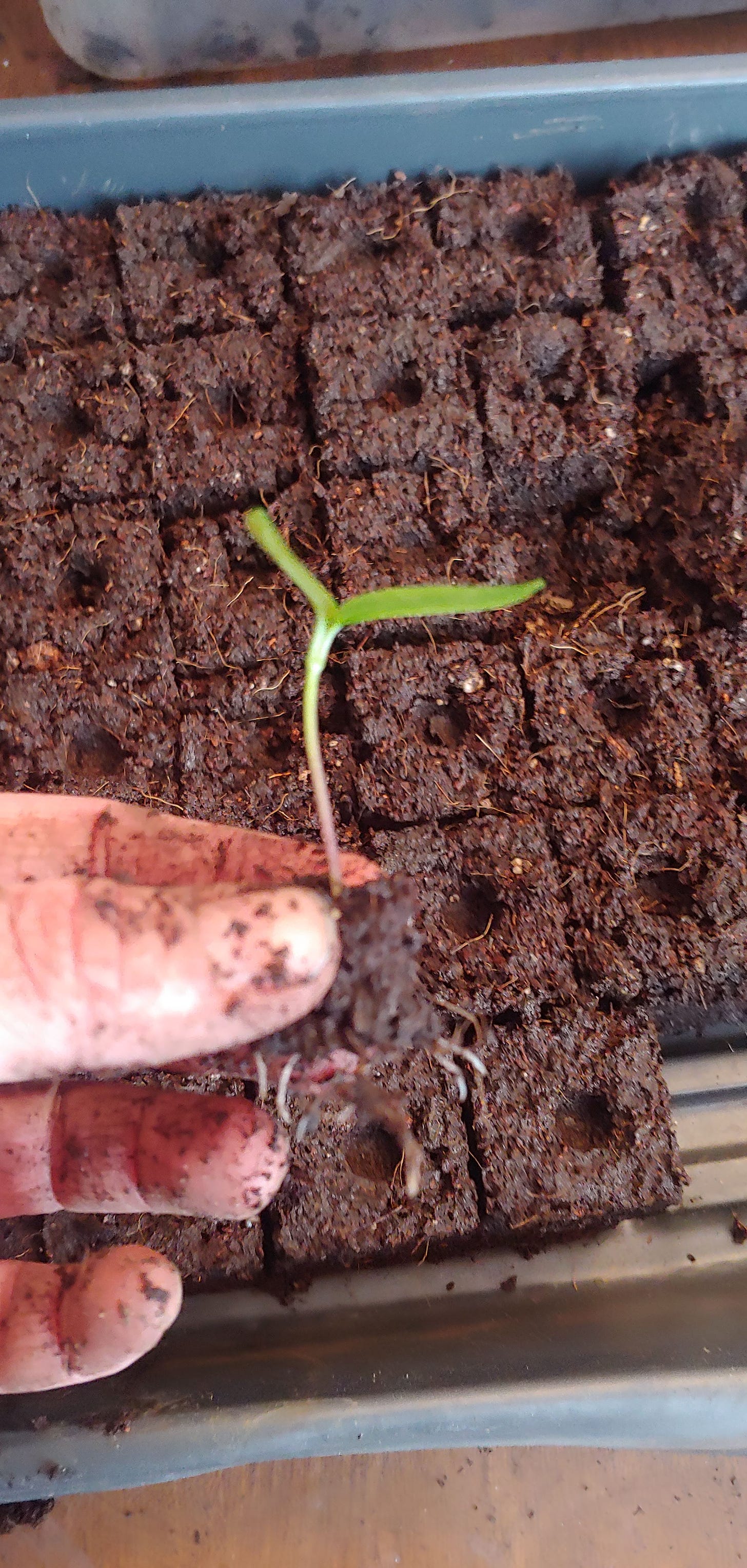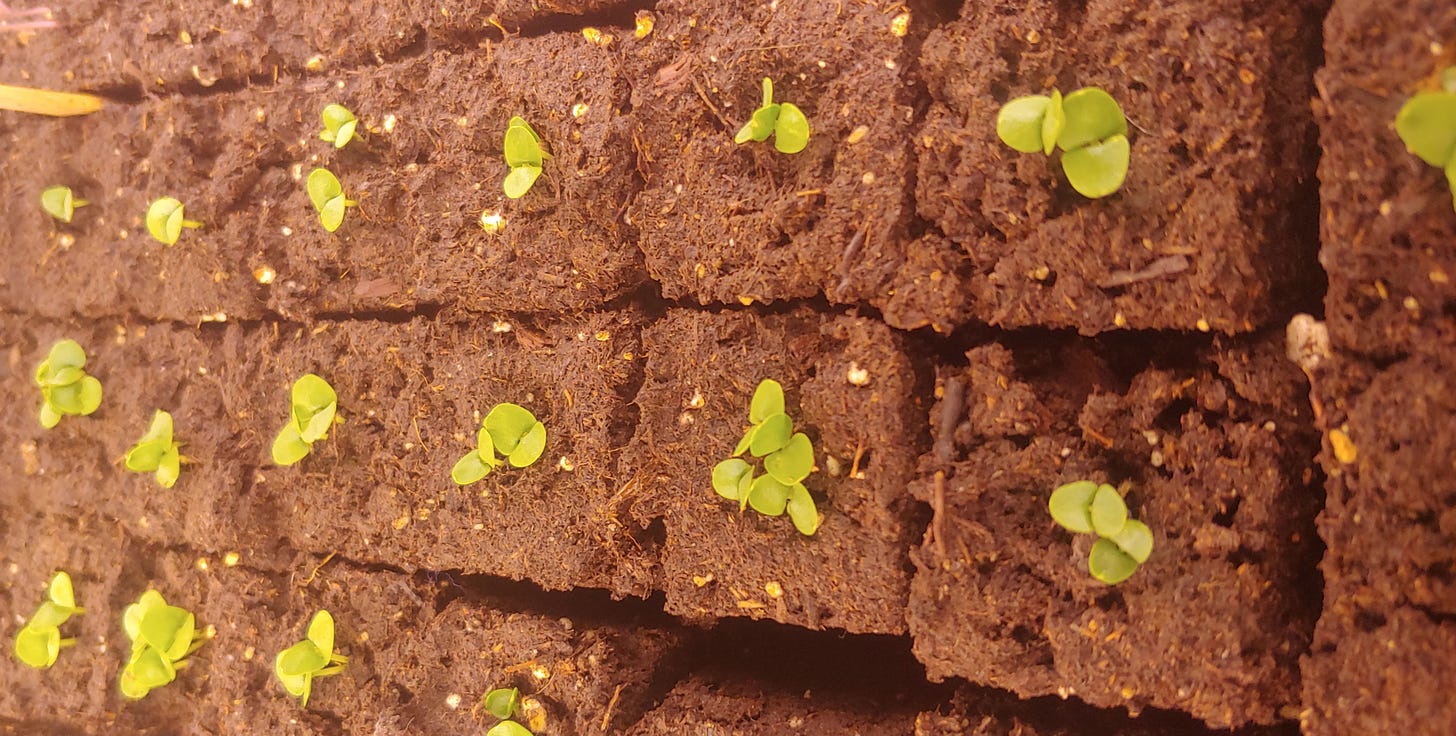February 2024: Sowing Seeds for Future Harvests
Glimmers of spring in the lengthening daylight and the confident promise of harvests.
February arrives and it’s really time to shift our farm focus back outdoors. It’s the start of a runaway train where time every week is devoted to planting seeds indoors, directly sowing seeds outdoors, and transplanting seedlings until September.
Indoors, I’m seeding the last of our onions, and first successions of scallions and leeks. I started some of the flowers and herbs that can take up to 3 weeks to germinate (eucalyptus, rosemary, lavender, etc.). Next week I’ll be starting our brassica-family seeds — kale, collards, etc.
Early next month I’ll plant peas in the cool spring soil and transplant cool-loving crops (like spinach and Asian greens) into our low tunnels covered in protective greenhouse film.
Birds will start mating and nesting in the coming weeks, so we need to set up the owl houses my dad built over the winter to combat the voles and rabbits this season. The bulbing plants are starting to send up their shoots and soon the pollinators will peek out from their winter cover to grab a snack of the early spring pollen-providers, crocus, willow, and dead nettle.
Feel Confident in How your Food is Grown as our CSA Member
Between romaine lettuce & applesauce recalls, it can be difficult to feel confident about the food you buy for your family.
You want to make sure what you feed them isn’t causing harm.
When you buy from our farm, you can be confident in how your food is grown.
Everything in your CSA Vegetable Subscription is grown on our farm without the use of pesticides, herbicides, or fungicides.
Our practices - from crop rotation to planting pollinator patches - are designed to mitigate plant diseases and pests, which means we don’t need to spray harmful chemicals on your veggies!
Most of our seeds are organically-grown heirlooms, which means their DNA has naturally combatted and selected for disease-resistance for at least the last 50 years.
The result? Vegetables that you can feel confident about when you sit down to dinner.
We have 8 spots left in our 2024 CSA Vegetable Subscription, so if you haven’t taken a look at the features, keep reading (hint: it’s more than just veggies) and sign up today.
Our CSA Vegetable Subscription Features:
Dates & Pick Up: 20-weeks of fresh produce June 12-October 23 (check out what produce you can expect week to week) picked up on the farm in Cambria, Wednesdays, 4:30-7:00pm
Share Size Options: Full Share (7-11 items weekly) or Half Share (4-6 items weekly) (ex: item = bunch of beets, bag of salad greens, pint of tomatoes, etc.)
Weekly Sunday Email: Know exactly what will be in your share so you can meal plan and grocery shop
Meal Coaching: Get suggested recipes each week based on the produce in your share and learn how to store your produce to extend its shelf life
Member-Only Resources: 24/7 access to digital resources like our Recipe E-book, nutrition info, & guides to teach you how to store, prep, and cook every vegetable in your share (even the ones you’re unfamiliar with)
Add-On Shares: Would you like grab some homemade bread, cheese, baked goods, or flower bouquets at pick up? Customize your subscription
Vacation Mode: Pause your subscription when you are out of town this summer
Payment Options: Pre-pay for your subscription in 1, 2, or 3 installment payments. Pay by check or debit/credit card
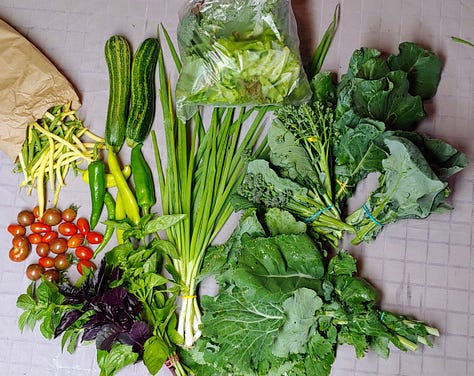
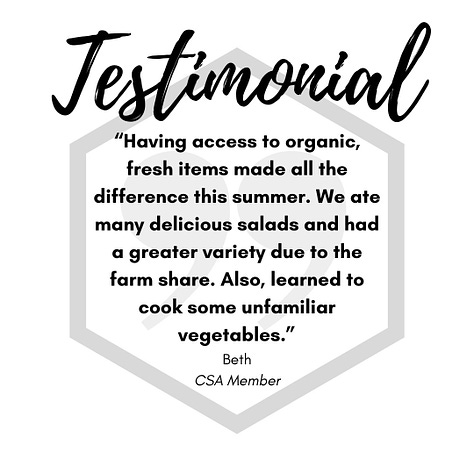
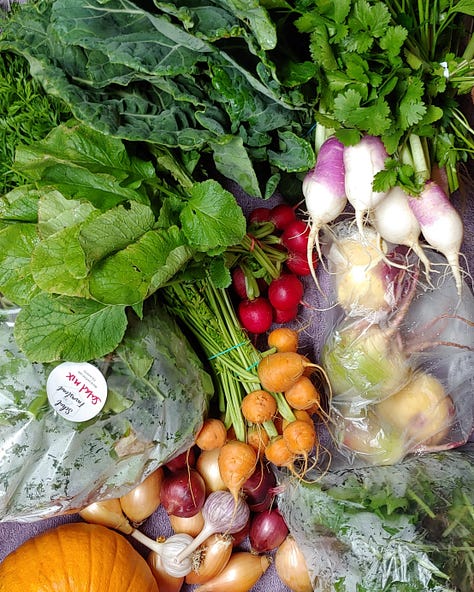
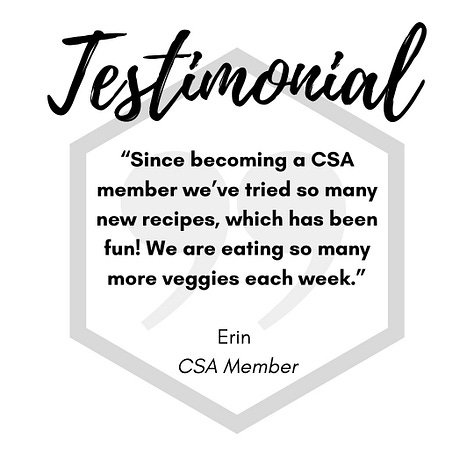
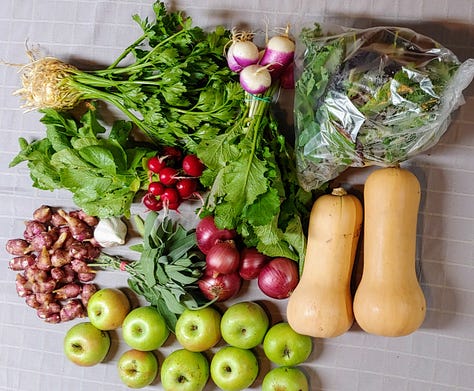

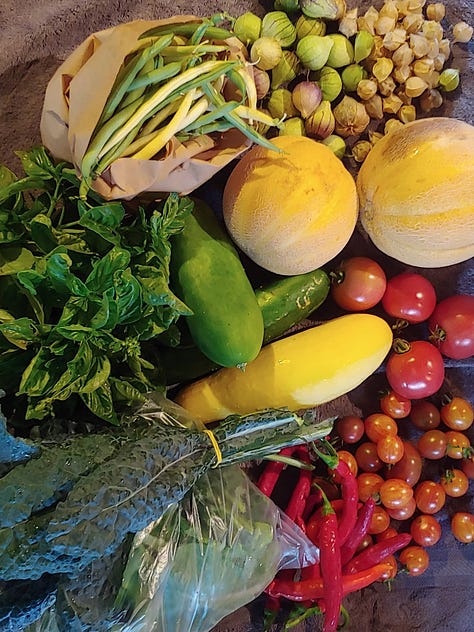
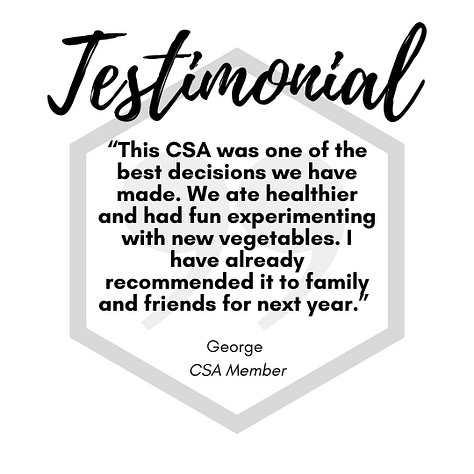
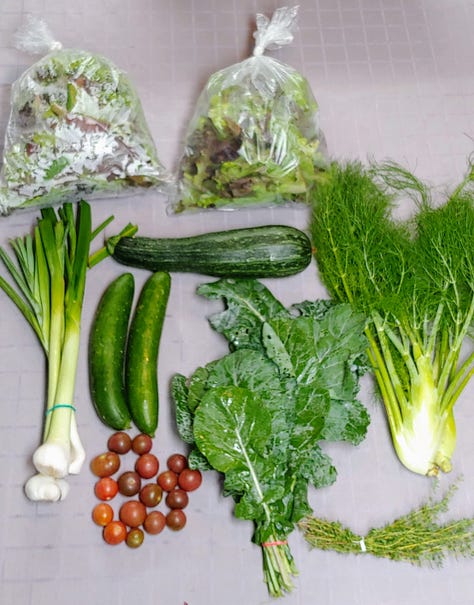
Testimonials from CSA Members & Examples of Weekly Shares
Growing Together
Ditch the pots, soil block! We use soil blocks to start thousands and thousands of seedlings each year on our farm.
A soil block is what it sounds like - a block of lightly compressed soil. It's both container and growing medium.
Instead of the roots of seedlings twisting round and round in pots, they "trim" themselves when they reach the air surrounding the soil block. They don’t become root bound like they do in plastic pots.
This creates healthier seedlings for transplanting into the garden or into our permanent beds on the farm.
We use soil blocks reduce our farm's single-use plastic consumption and waste. One way to reduce your own reliance on plastic seedling pots or to save money, is to create soil blocks.
The best part is, soil blocking isn't something that ONLY small-scale farmers can do! It's perfect for backyard gardens.
In fact, I started using soil blocks when growing in a community garden.
We purchased our soil block makers of various sizes from Johnny’s Selected Seeds and Fruition Seeds, but there are several seed companies that carry them.
Recipe Share
A digital index card with in-season, too-good-not-to-pass-along recipes.
We’ve been selling microgreens this winter at the Lewiston Artisan Farmers Market and we can tell they are a little intimidating for some customers.
So what is a microgreen? Microgreens are the tiny, edible cotyledon leaves (first leaves) that first appear from vegetable or herb seed. They’re basically baby veggies! Their flavor is intense and they’re much more nutrient dense (roughly 5 times more!) than their mature counterpart. There are so many different veggies and herbs that can be grown as microgreens - arugula, pea, amaranth, cilantro, basil, radish, kale, fennel, spinach, beet, and more!
What do I do with microgreens? Treat them as a super nutrient-dense herb that you are sprinkling onto what you are eating. You’re supercharging what you are eating with a large dose of minerals, vitamins, and fiber. Here are a few ways to enjoy them:
When you make a homemade pizza (or bake the one you bought), add microgreens to the top as soon as it’s removed from the oven.
Top your burger, sandwich, wrap, tacos, etc. with microgreens
Toss them into your salad
Garnish your soup, rice dish, quinoa, pasta, etc. with them (like you see chef’s do with parsley or other herbs)
Add them to your smoothie
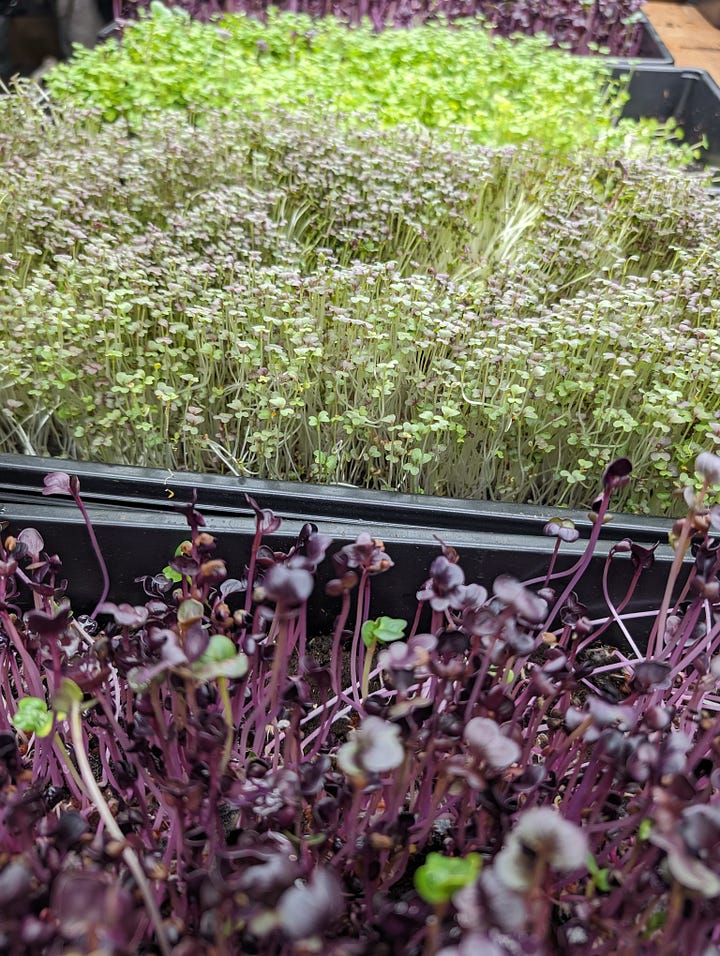
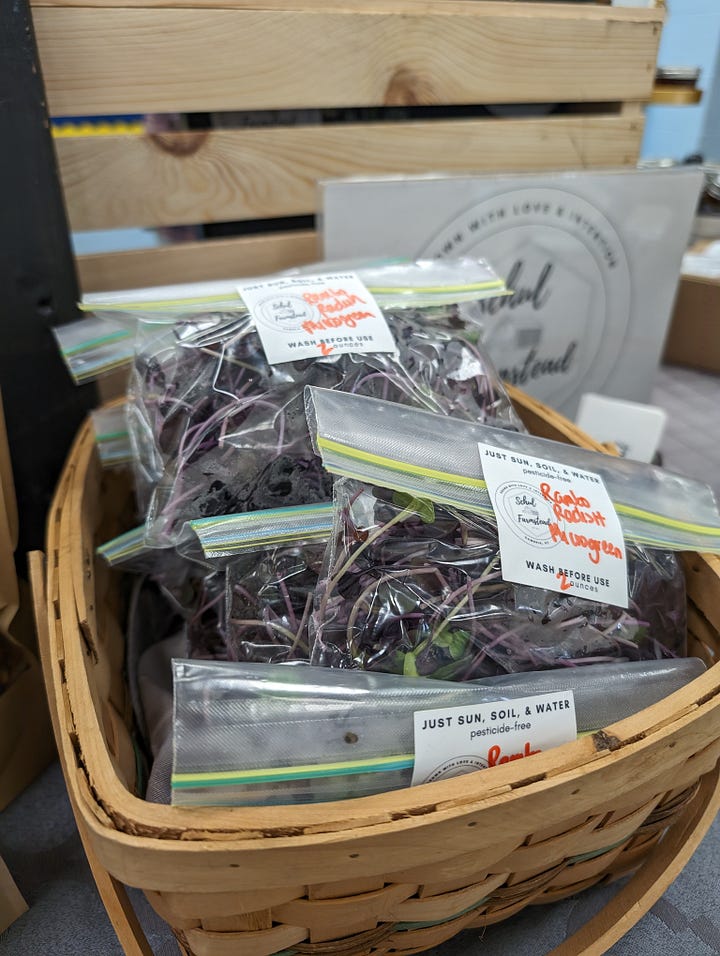
Giveaway & Give us a Follow
The last week of February we will be doing a GIVEAWAY with Three Little Hens Baking Co. Be sure to follow us on Facebook or Instagram to learn more and participate. Details will be released on February 26 on our social media pages. Stay tuned!
Featured Friends
WNY is home to many small businesses and nonprofit organizations. Each month we introduce you to 2 that we think you should know.
Flicker and Flora
There are lots of candle makers, but few who are as eco-conscious as Flicker and Flora of Lockport, NY. From their hand-poured candles in antique glassware to their bees wax food wraps to paraben-free and phthalate-free perfumes, everything in their business is about creative reuse. Everything in their collection is sustainable and non-toxic. You can even refill their vessels with their candle refills, so you aren’t having to toss the used vessel away after use. You can find them at markets around the WNY region or shop their website.
Niagara County Family Opportunity Center
Last year the Family Opportunity Center opened in Lockport, offering free services to Niagara County families to support the parenting journey. They have a free play space, filled with interactive toys, and classes for your little ones, as well as parenting support classes/groups. My 14-month old loves getting his energy out during their Open Play Hours and I look forward to signing up for some of the other activity nights when he is older. They have a website, but for the most up-to-date calendar of activities and resources, check out their Facebook page.




